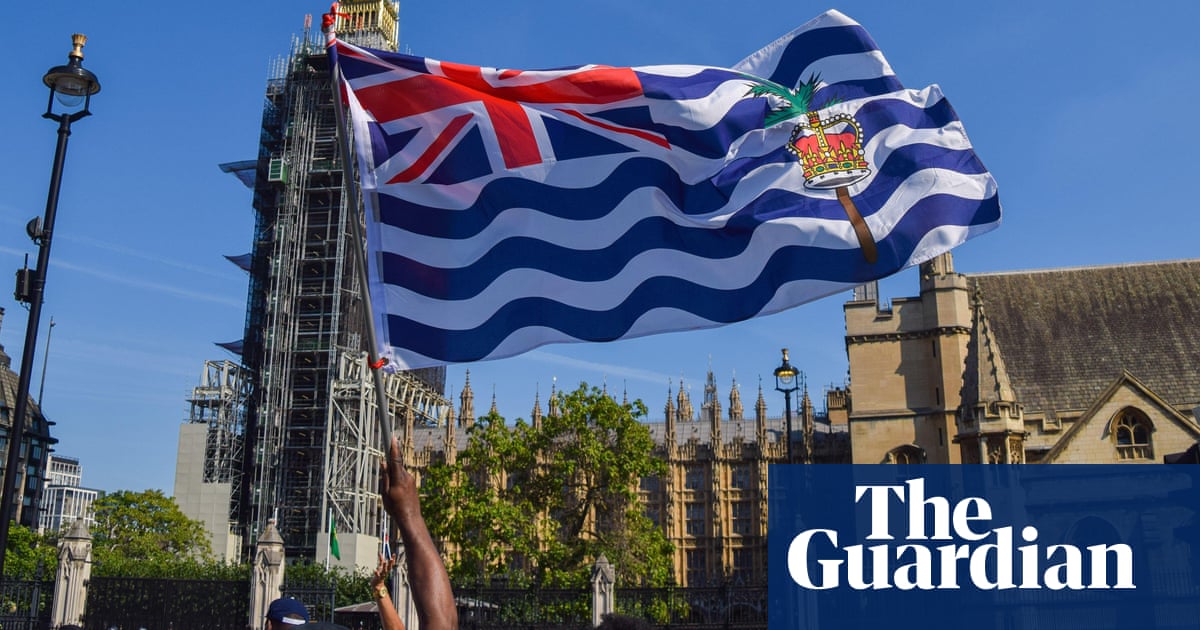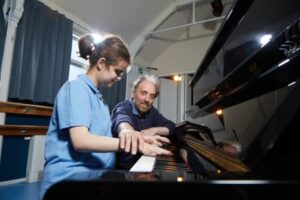
Exiled islanders from the disputed British-owned Chagos Islands are finding their heritage has been removed from new identity documents in an apparent move by Mauritius to stake its claim to the territory.
British ownership of the Chagos Islands has long been challenged by Mauritius, where most islanders were shipped in the 1960s after being evicted from their Indian Ocean homeland to make way for a US military base on Diego Garcia, the largest island.
After arriving in Mauritius and Seychelles, Chagossians lived in poverty. Thousands moved to Britain where they were granted a right to citizenship in 2002. In 2022, descendants of native Chagossians were also permitted to apply for British citizenship.
But reports are emerging of people applying for new passports and copies of birth certificates, only for their documents to arrive with their place of birth altered to Mauritius and the names of their parents removed.
Seven Chagossians told the Guardian they have had their place of birth replaced with “Mauritius” on passports and birth certificates issued by Mauritius and Seychelles.
In Mauritius, during any administrative procedure, such as opening a bank account, citizens must present a birth certificate reissued within the previous three months.
“People are trying to deny we exist,” said Marie Sagai, who lives in Mauritius but was born on the Chagos island of Peros Banhos. Her place of birth and the names of her parents were removed from her new certificate.
“The passport officer told me my homeland doesn’t exist,” said a 65-year-old who renewed his passport in Seychelles in February. His new document now falsely states he was born in Mauritius instead of Diego Garcia. He requested anonymity, fearing a backlash. “It’s traumatic, and it makes you lose your dignity,” he said. “I don’t have a place I can call home.”
Mauritius formally challenged Britain’s ownership of the islands in 2022, after a ruling by the international court of justice that the UK had acted unlawfully in retaining its colonial ownership in 1965 as part of Mauritius’s independence agreement.
To qualify for UK citizenship, people must prove they were born on the Chagos Islands or are a descendent of somebody who was.
There have been several rounds of talks on the islands’ future with the British government rejecting Chagossians’ requests to be present.
In January the foreign secretary, David Cameron, ruled out any plans for resettlement. His remarks emerged in evidence to a foreign affairs committee hearing in January, just months after his predecessor, James Cleverly, confirmed resettlement was part of talks with Mauritius.
Many Chagossians want self-determination, fearing their identity would be lost in any transfer of ownership to Mauritius, which does not recognise the islands as an independent territory.
Bernadette Dugasse, 67, received her new passport last August. Dugasse was born on Diego Garcia, but grew up in Seychelles after her family was forcibly evicted when she was two. Her renewed Seychellois passport states she was born in Mauritius.
When she questioned it, she was told the rules had changed – Seychelles and Mauritius now regard her homeland as Mauritian territory.
“I feel violated. I have no connection with Mauritius,” said Dugasse. “Nobody should have the right to remove somebody’s place of birth. I’m so worried.”
Dugasse, who lives in England, also has a British passport, which has her place of birth as Diego Garcia.
“Mauritius is trying to make us invisible again, but we are organised, and we will continue to fight,” said Pascalina Nellan, a granddaughter of a Chagossian living in the UK.
“Mauritius and the UK are currently deciding our future and the future of our lands and oceans without our involvement.”
The UK Home Office declined to comment. The Mauritian government did not respond to a request for comment.
Source: theguardian.com


















